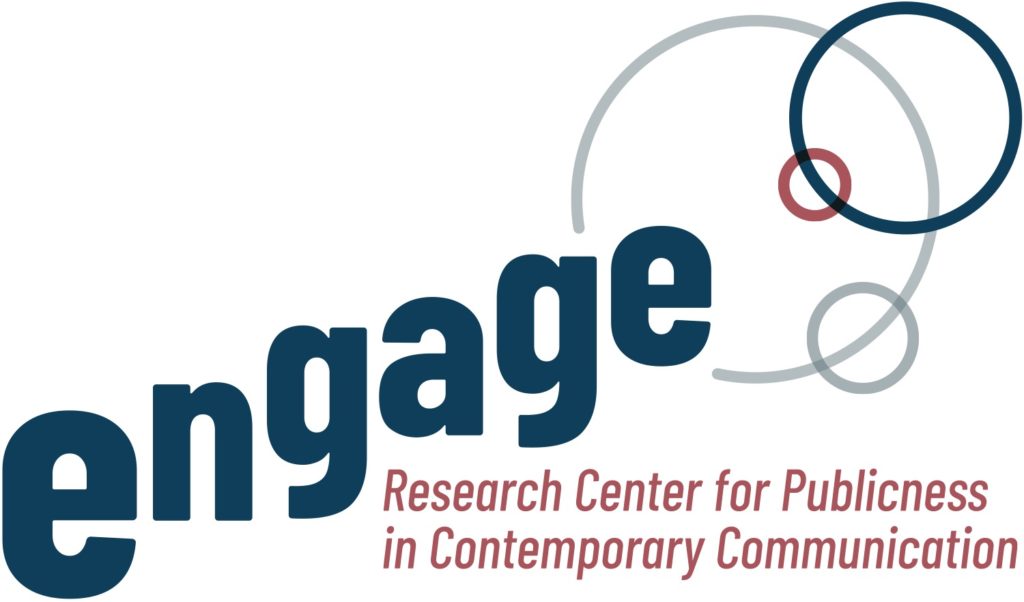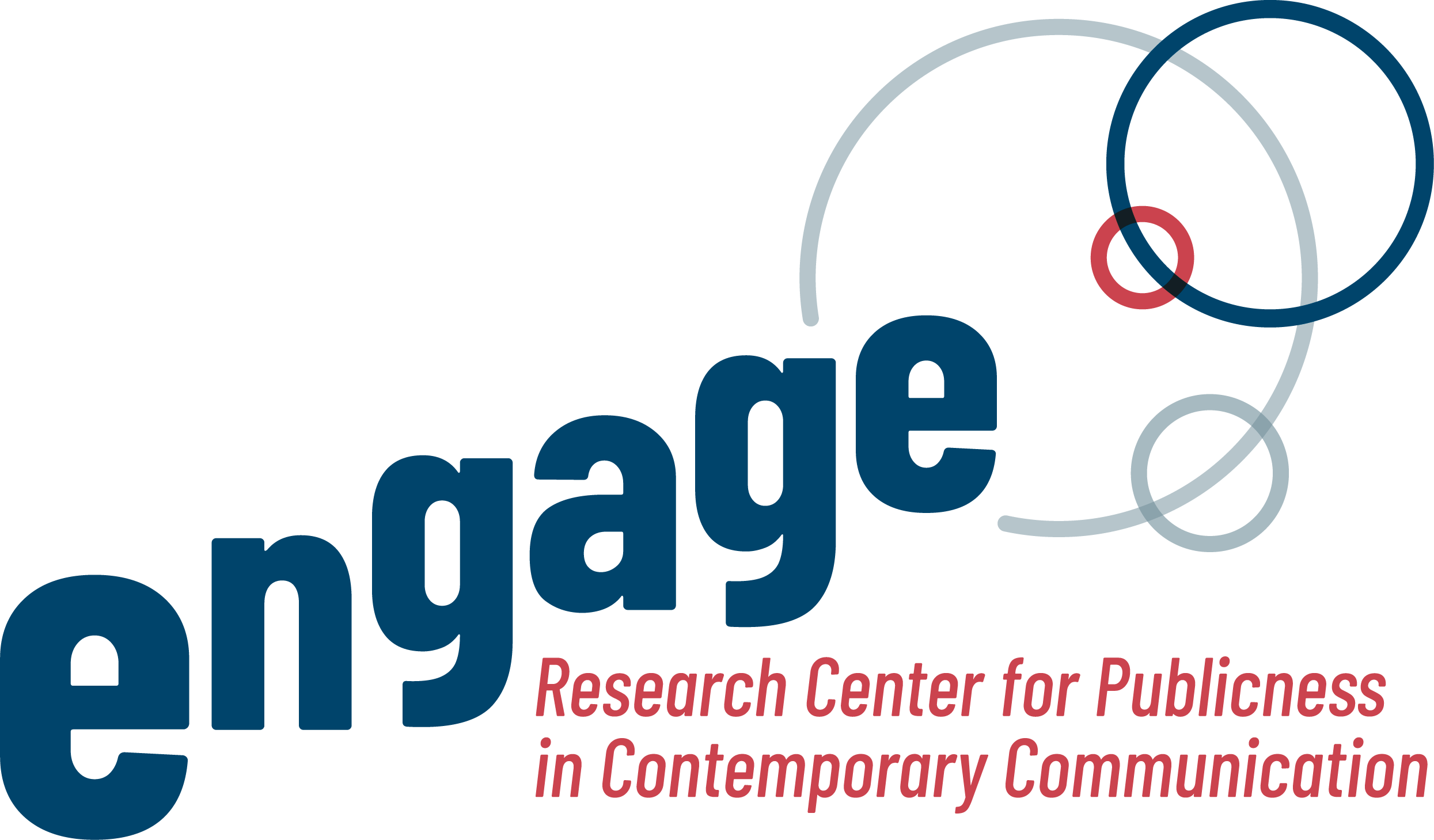Engage Seminar 25th November 2022

The Engage seminar aims to support and extend the work of its members through exchanges and meetings open to all interested parties. Based on the contributions of researchers, most of whom come from outside the Université Saint-Louis – Bruxelles, the aim is to feed the center’s reflections by broadening them to other research horizons. The themes addressed are therefore varied while remaining within the center’s research areas. Each session consists of one or two presentations related to the chosen theme, which we extend through discussions in a context that we hope is both stimulating and benevolent. A lunch and/or drink conclude the session if the health conditions allow it.
In this seminar session, Engage invites two keynote speakers to present the results of their research on populist discourses and discourses on populism, as well as anti-establishment parties.

Benjamin De Cleen is associate professor at the Vrije Universiteit Brussel Communication Studies Department where he is the coordinator of the English-language master on Journalism and Media in Europe. His research has mainly been focused on far right rhetoric, and on the discursive conceptualization of populism, nationalism and conservatism. Benjamin is co-director of the ECHO research group at the VUB and the chair of DESIRE, the Centre for Democracy, Signification and Resistance, an international joint research group that brings together discourse researchers working from the VUB, University of Ljubljana, University of Essex, Charles University in Prague, and Aristotle University of Thessaloniki.
Benjamin’s work can be found here: https://www.researchgate.net/profile/Benjamin-De-Cleen
Populist and nationalist discourse and discourses about populism
Discourse about populism is everywhere in politics, media and academia. In this talk I want to critically reflect on the ubiquity of the concept of populism and the analytical and normative limitations of focusing political debate and analysis around populism. I will start with a precise and modest conceptualization of populism as a political logic, focused on distinguishing populism from nationalism and racism with which it is all too often confused. Secondly, I turn attention to the politics of discourses about populism, asking what the debate about populism reveals about those using the term, in politics, media and academia. In conclusion, I will argue against the development of a field of ‘populism studies’, shedding light on the limitations of organizing academic analysis around ‘populism’ and proposing that it is time for academia to move beyond its own ‘populist moment’.
Some publications relevant to the talk:
De Cleen, Benjamin Glynos, Jason & Mondon, Aurelien (2018) Critical Research on Populism: Nine Rules of Engagement. Organization 25(5): 649-661 (2016)

Laura Jacobs, , FNRS postdoctoral researcher at Université libre de Bruxelles (ULB), and more specifically Cevipol (Centre d’Etude de la Vie Politique). Her research interests include anti-immigration attitudes, voting behaviour and media effects. Her methodology draws on content analysis, survey analysis and experiments.
The electoral ramifications of (not) including anti-establishment parties in government for voters: patterns in communication & effects
Ruling with anti-establishment parties is a heavily debated issue. Consistent exclusion of anti-establishment parties from government may be a cause of increasing political alienation and anti-elitist feeling amongst voters that support these types of parties, and may undermine these voters’ levels of political trust and democratic support. This raises the question whether including anti-establishment parties in government may help to (partly) reduce political alienation and restore trust in politics and democracy. However, including anti-establishment parties may backfire and reduce trust in politics and democracy of voters that do not support anti-establishment parties. So far, systematic empirical and causal evidence is absent. I aim to systematically map the costs and benefits of (not) including anti-establishment parties in government on citizens’ political attitudes and vote intentions. I study the Western European context, where 3 cases where anti-establishment parties have either been excluded (Belgium), included (Austria) and have formally supported a minority government (the Netherlands) will be examined in depth. I combine content analysis (to identify political claims on government participation of anti-establishment parties), analysis of aggregate-level survey data (to analyze effects of (non-)inclusion of anti-establishment parties from ruling on election results and voter turnout) and an experiment (to clarify the causal mechanism). This presentation will give an overview of the main findings that establishment parties use to motivate either ruling or not ruling with anti-establishment parties (based on evidence from Twitter data of parties in Austria, Belgium, Germany and the Netherlands). Similarly, results from an aggregate-level dataset on the electoral consequences of inclusion and exclusion will be discussed.
Information & Registration
The event is free but registration is mandatory via this link
WHEN ? 25 th November 2022, 15:30 – 18:30
WHERE ? Salle des examens (2nd Floor)
Université Saint-Louis – Bruxelles
Boulevard du Jardin Botanique 43
1000 – Bruxelles
INSCRIPTION : click on the link
